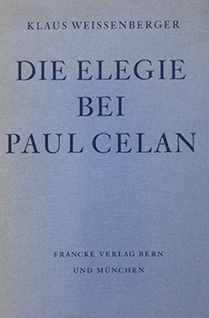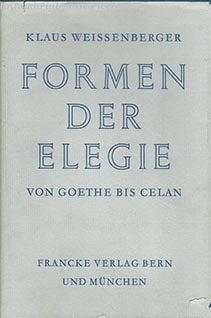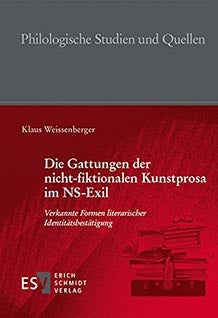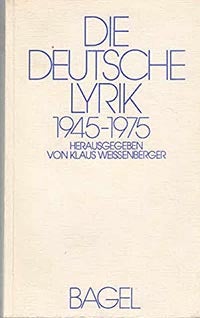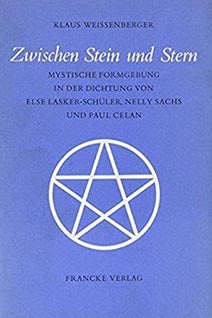Klaus Weissenberger studied Middle and New High German Literature, Ancient and Modern History, and Philosophy at the University of Hamburg, Germany, and at the University of Southern California. He is the author of eight books, and his research focuses mainly on exile literature and non-fictional artistic prose, the lyric genre of the elegy from its classical adoption by Goethe to its modern representation in the twentieth century, and on authors, such as Paul Celan, Else Lasker-Schüler, Nelly Sachs. He also edited Wilhelm Lehmann’s novel, Der Provinzlärm (1931).
His research interests include the development of lyric poetry from Goethe to the present, the development of the fairy tale from its pre-literary origins to modernity, and the differences between German and Austrian literature in the nineteenth and twentieth centuries. Before is retirement in 2021, he was also a member of the Program in Jewish Studies.
Selected Publications
- Die Gattungen der nicht-fiktionalen Kunstprosa im NS-Exil: Verkannte Formen literarischer Identitätsbestätigung (Berlin: Erich Schmidt, 2017).
- “Stefan Zweig’s Non-Fictional Prose in Exile: Mastery of the European Genre of Kunstprosa,” in Birger Vanwesenbeeck and Mark H. Gelber (eds.), Stefan Zweig and World Literature: Twenty-First-Century Perspectives (Rochester, NY: Camden House, 2014), 122-51.
- “Johannes Urzidils Kunstprosa im Exil: Paradigmen einer Erinnerungskunst,” in Steffen Höhne, Klaus Johann, and Mirek Nemec (eds.), Johannes Urzidil (1896-1970): Ein “hinternationaler” Schriftsteller zwischen Böhmen und New York (Cologne: Böhlau, 2013), 385-94.
- “Ernst Schönwiese im Dialog mit Juan Ramón Jiménez und David Herbert Lawrence,” in Robert G. Weigel and George E. Emery (eds.), Ernst Schönwiese: Aspekte seines Werks (Tübingen: Francke, 2012), 203-27.
- “Performing the Poem: Rituals of Activism in Expressionist Poetry,” in Neil H. Donahue (ed.), A Companion to the Literature of German Expressionism (Rochester, NY: Camden House, 2005), 185-228.
- “Franz Werfels Prosa — ihre Entwicklung vom sozialkritischen Pathos zum gemeinschaftsbildenden Ethos,” in Helga Schreckenberger (ed.), Die Alchemie des Exils: Exil als schöpferischer Impuls (Vienna: Edition Praesens, 2005), 191-215.
- “Prosa,” Historisches Wörterbuch der Rhetorik, ed. Gert Ueding et al., vol. VII (Darmstadt: Wissenschaftliche Buchgesellschaft, 2005), 321-48.
- “Kunstprosa der Moderne,” Historisches Wörterbuch der Rhetorik, ed. Gert Ueding et al., vol. IV (Darmstadt: Wissenschaftliche Buchgesellschaft, 1998), 1506-31.
- Ed., Prosakunst ohne Erzählen: Die Gattungen der nicht-fiktionalen Kunstprosa (Tübingen: Niemeyer, 1985).
- Ed., Die deutsche Lyrik, 1945-1975: Zwischen Botschaft und Spiel (Düsseldorf: Bagel, 1981).
- Zwischen Stein und Stern: Mystische Formgebung in der Dichtung von Else Lasker-Schüler, Nelly Sachs und Paul Celan (Bern: Francke, 1976).
- Die Elegie bei Paul Celan (Bern: Francke, 1969).
- Formen der Elegie von Goethe bis Celan (Bern: Francke, 1969).
